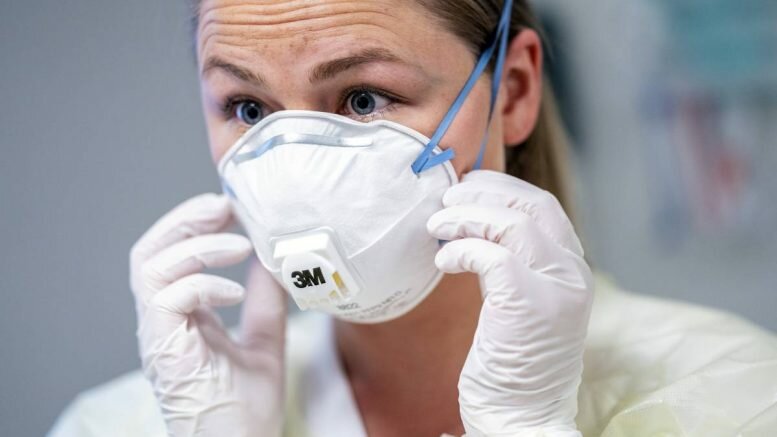A man in the United States was infected with the coronavirus twice and became ill the second time. That is evidence that only a vaccine can protect you against infection, researchers believe.
The second time the Nevada man was infected, he ended up in a hospital with respiratory problems and had to receive oxygen, according to the Los Angeles Times.
According to the doctors at the hospital, the man was then infected with a different genetic type of the coronavirus than the first time, but with the same result.
Therefore, the assumption that infection makes you immune does not hold.
According to the journal Lancet Infectious Diseases, the man in Nevada is the first person in the United States to have been diagnosed with the SARS-CoV-2 virus twice.
Not in the risk group
At 25 years of age and without underlying diseases, he was not in the risk group, nor did he have a weakened immune system as a result of HIV infection or the use of drugs or narcotics.
The man was first diagnosed with the infection in April and became well after nine days.
Two tests in May showed he was infection-free.
On May 28, however, he began to feel unwell again, and on June 5, he ended up in the hospital with major breathing problems.
He was confirmed to be infected again.
Different variants
The two virus variants detected in the 25-year-old were not genetically identical, but both belong to a group that has primarily been detected in the USA.
Also, in Hong Kong, Belgium, and Ecuador, corona patients have been diagnosed with the infection an additional time, after first testing negative and being declared healthy.
The researchers, therefore, concluded that infection is no guarantee of future immunity.
US President Donald Trump, who has now resumed the election campaign after being briefly hospitalized with COVID-19, has claimed that he is immune to the virus.
Herd immunity
The researchers’ findings further cast doubt on herd immunity theory – that the virus can no longer spread when 70 to 80% of the population has been infected and has supposedly developed an immunity.
State epidemiologist Anders Tegnell in Sweden is among those who have promoted the theory.
Throughout April, he claimed that Sweden could get herd immunity during May, which has not yet happened.
This week, the World Health Organization (WHO) stated that it was unethical to let the coronavirus run free in the hope of developing herd immunity.
“Never in public health history has herd immunity been used as a strategy to respond to an outbreak, at least not a pandemic,” WHO chief Tedros Adhanom Ghebreyesus said on Monday.
Can’t rely on immunity
“The cases where people have been re-infected are telling us that we can’t rely on immunity…
“Not only would such a strategy be fatal to many, but it would also not be effective,” Akiko Iwasaki, an expert in virology and immunology at Yale University, concluded.
The good news is that even though one can be infected with different variants of SARS-CoV-2, this does not mean that different vaccines must be developed for each variant.
“As it looks now, one vaccine is sufficient to protect against all virus variants,” Iwasaki stated.
© NTB Scanpix / #Norway Today





Be the first to comment on "Getting infected with coronavirus does not guarantee future immunity"